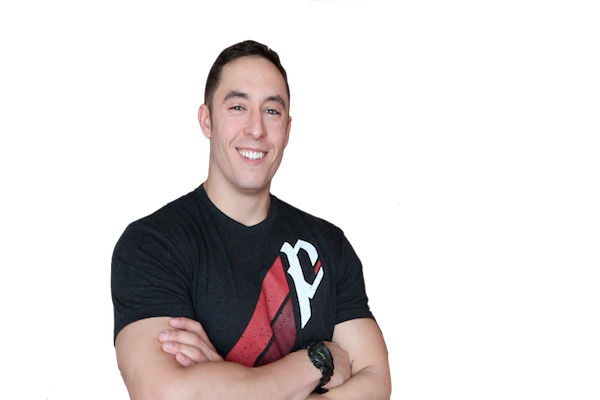Don't Crash Diet. Eat Mo' Food.
"Our ancestors did this", "our ancestors did that."
Whoopdie freaking doo. Our ancestors pooped outside all the time, too (hehe that rhymed). How's that going for ya?
I can hardly handle all of the fads that our going around just because "our ancestors did it." Believe me, I understand that hunter gatherers exercised more, ate more nutrient-dense foods, and were leaner and just healthier all around.
But what if I told you that their diet and exercise wasn't the big difference between them and western civilization. What if I told you that hunter gatherer groups have similar energy expenditure that you and I do?
Here comes the bomb.
They do.
Hunter gatherer groups aren't leaner and healthier because their burning so many more calories than we are, according to a recent study (1).
Then What is it?
I'm sure that you've heard this several times over: Your body is smart.
And it is.
It will adapt and change they way it does things based on the environment that you put it in. So how does that translate with the Hadza population that was studied?
The Hadza is one of the few remaining hunter gatherer populations left. Located in Tanzania, they forage for their food individually and sometimes cooperatively for a diet that consists mainly of honey, fruits, and occasional meat. Just like you'd think, they're on the move constantly during the day in order to gather and hunt.
Since we've been taught that eating less and moving more is the ultimate key when it comes to burning calories and losing fat, it would be fair to think that these people are plowing through calories each day, right?
Interestingly enough, they're not. Why?
Their body is smart, and their metabolism and energy expenditure has adapted to the environment it has been placed in. Think about it. They don't eat much food - I'd be willing to guess 1000-1200 calories per day (and that's generous). On top of that, they're constantly moving around. Walking, running, jumping, walking, running, jumping. What does that combination tell the body?
BE EXTREMELY EFFICIENT AT UTILIZING THE CALORIES GIVEN.
The body has no other choice. The body wants to survive and that's what it's always going to revert to.
Survival.
All of that activity and minimal calorie intake is just telling their body to be reeeally good at utilizing the energy it's been given. So how does it do that?
By expending less energy. The less energy the body has to expend, the better.
What Does That Mean For Us?
Great question. Because we're not hunter gatherers, right?
Right.
But our bodies work the same way. In fact, if you've been attempting to lose fat at some point in your life and you reach a plateau, I'm willing to bet that you reached a state where your body has become the most efficient it's ever been.
Here's why.
As I mentioned before, we've been taught that eating less and working out more is the ultimate, be-all end-all for fat loss. So, what do we do? We begin to control our portions, and we start exercising more. As a result, we lose some weight.
But we want to lose more.
So what do you do? Eat even less, and workout even more. By this point, you've hit a plateau and you're doing all you can to beat it. Eating 1000 calories per day, ramping your cardio up to 1 hour per day before or after you lift weights. What have you done?
You've become the Western Hadza, my friend.
Your body is now an efficiency machine, and fat loss is extremely difficult.
Reverse Dieting
Getting to this point of efficiency isn't a bad thing, unless your calories are super low, your cardio is hours long, and your life is absolutely miserable because of it. But since most people on a fat loss plateau feel this way, I'm going to speak through that lens.
Reverse dieting is the answer to this problem.
It's exactly what it sounds like. Simply put, reverse dieting is a term used when slowly increasing calorie intake over a period of time. If your body is extremely good at using as little energy as possible in order to do the things it's being asked to do, we need to change that.
We want to make the body inefficient at doing the things we ask it to do. The word "inefficient" sounds like a negative thing, but it's not. We simply want your body to use more energy to operate. Whether you're training, resting, or performing NEAT (non-exercise activity thermogenesis) - which is fidgeting, doing chores, etc. - we want your body to need to use more energy for those tasks. Why?
Well, the more energy that is required for those tasks, the more food you will be able to eat without putting on weight. In this case I'm speaking of your RMR (resting metabolic rate). The higher that number gets, the easier it will be to lose fat. Say your initial RMR is 1500 kcal per day. You'd need to eat like a bird in order to lose fat. Now say you increased it to 2000 kcal per day. Which would you rather lose fat on. Dieting at 1300 kcal, or 1800 kcal? I'd choose 1800.
Mo' food baby, mo' food.
So how do you increase your RMR to make sure your body is using more energy to perform? I'm sure you could've guessed it:
LIFT SOME HEAVY A$$ WEIGHTS (2).
It's simple, and you've heard this before: the more lean muscle tissue your body holds, the more calories you'll burn at rest. So make weight training a staple in your routine.
"Good talk Adam, but how the heck do I start? What do I do from here?"
Great question, fake person in this article. Here are some simple steps on what I would do if I was in your shoes:
1. Figure out your daily maintenance caloric needs. You'll need to eat this many calories to maintain your weight. If you don't know your body fat percentage, get it tested. Because that plays a huge role in this number.
2. Once you've found your maintenance number, begin tracking your food intake. If your maintenance number is HIGHER than what you normally eat, and you haven't lost weight in a while, slowly at carbohydrates and fat to your diet (2-5% increase in cals per week from carbs and fats) until you get there.
3. Once you've been eating at your maintenance level, continue to increase your daily caloric intake each week. If you don't mind a little extra fat gain, bump your cals from carbs and fat by 6-10% each week. If you want to stay as lean as you possibly can, bump your cals from carbs and fat by 2-5% each week. Also, slowly take away your cardio sessions each week. Remember, we want the body burning max calories with the least amount of work.
*Keep in mind, this is all assuming you're eating 1g of protein per pound of lean mass.*
4. Once you feel comfortable with your caloric intake or you feel like you wouldn't be comfortable eating more than that, begin decreasing your calorie intake SLOWLY each week from carbs and fats. I recommend 2-5% decrease in calories.
5. Following that decrease, sprinkle in some cardio or take cals down a bit more. As you hit plateaus. Whatever you do, DO NOT decrease calories significantly in a short amount of time, or add a ton of cardio to your routine in a short amount of time.
Takeaways
Your body is smart, and it will adapt. Don't continue to starve and run, run and starve. Slowly increase your caloric intake so you can set your body up to use energy like crazy. Build muscle and RMR (resting metabolic rate) with resistance training, and sprinkle in a slight decrease in cals or some cardio as needed, but NEVER overdo it.
Thanks for reading!
References
1. Pontzer, H, et al. “Energy Expenditure and Activity among Hadza Hunter-Gatherers.”American Journal of Human Biology : the Official Journal of the Human Biology Council., U.S. National Library of Medicine, www.ncbi.nlm.nih.gov/pubmed/25824106.
2. Pratley, R., et al. “Strength Training Increases Resting Metabolic Rate and Norepinephrine Levels in Healthy 50- to 65-Yr-Old Men.” Journal of Applied Physiology, American Physiological Society, 1 Jan. 1994, jap.physiology.org/content/76/1/133.
Adam is a fitness professional, Chipotle fanatic, and cookie enthusiast based in Fort Collins, CO. After hanging up the baseball cleats, he found a strong interest in the human body and how it performs. Since then, Adam has been transforming lives through fitness in a fun and encouraging atmosphere.
Adam is an ACE CPT and has years of experience in fat loss, muscle hypertrophy, and sports performance training.




